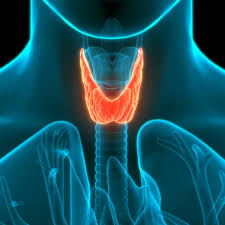Understanding the Thyroid
Dear friends! each year on May 25th, World Thyroid Day is observed globally to increase awareness about thyroid diseases, their symptoms, and the importance of early diagnosis and treatment. Dr. Ruby Bansal – a Preventive health & Infectious Diseases Expert and Joint Secretary of WOW India – has written this article on the subject – what are the symptoms of this disease, what are the causes of this and how to prevent it… Must read… Dr. Purnima Sharma, Sec. Gen. WOW India and editor of WOW Web…
The thyroid gland, a small butterfly-shaped organ located in the neck, plays a critical role in regulating

metabolism, energy production, and overall hormonal balance. Despite its significance, thyroid disorders often go undiagnosed, affecting millions of people worldwide.
Understanding the Thyroid
The thyroid gland produces hormones like thyroxine (T4) and triiodothyronine (T3), which regulate the body’s metabolic rate, heart function, digestive health, muscle control, brain development, and bone maintenance. When the thyroid gland malfunctions, it can lead to either hypothyroidism (underactive thyroid) or hyperthyroidism (overactive thyroid).
Hypothyroidism is characterized by insufficient production of thyroid hormones, leading to symptoms such as fatigue, weight gain, cold intolerance, depression, and slowed heart rate. In contrast, hyperthyroidism results from an excess of thyroid hormones, causing symptoms like weight loss, rapid heartbeat, anxiety, irritability, and heat intolerance.
Common Thyroid Disorders
Hashimoto’s Thyroiditis: An autoimmune disorder that is the most common cause of hypothyroidism. The body’s immune system attacks the thyroid gland, impairing its ability to produce hormones.
Graves’ Disease: Another autoimmune disorder, but this one causes hyperthyroidism. It results in the overproduction of thyroid hormones and can lead to a swelling in the neck known as a goiter.
Thyroid Nodules: These are lumps that can develop in the thyroid gland. While most nodules are benign, some can be cancerous, necessitating careful monitoring and sometimes surgical intervention.
Thyroid Cancer: Although relatively rare, thyroid cancer can occur at any age. Early detection through regular check-ups significantly improves treatment outcomes.
Importance of Awareness and Early Detection
Awareness about thyroid health is crucial because symptoms of thyroid disorders are often subtle and can be mistaken for other conditions. Regular screening and awareness can lead to early diagnosis and effective management
Get yourself tested for thyroid disorders
Test T3,T4 and TSH
If anything abnormal we used to check anti thyroid antibodies also
Ultrasound neck to see any nodule in gland
See your doctor if you have any problem
Living with Thyroid Disorders
For those diagnosed with thyroid disorders, effective management often involves medication, lifestyle adjustments, and regular monitoring. Synthetic thyroid hormones can help manage hypothyroidism, while antithyroid medications or radioactive iodine treatment can treat hyperthyroidism. Maintaining a balanced diet, managing stress, and engaging in regular physical activity also support thyroid health.
Conclusion
World Thyroid Day serves as a reminder of the critical role the thyroid gland plays in our overall health and well-being. By increasing awareness, promoting early diagnosis, and supporting those affected by thyroid conditions, we can improve outcomes and enhance the quality of life for millions around the world. This day encourages us all to pay closer attention to our thyroid health and advocate for better education and resources to combat thyroid disorders effectively.

